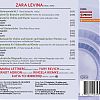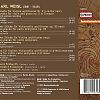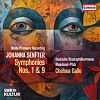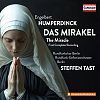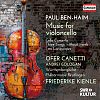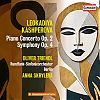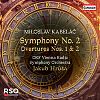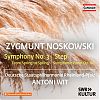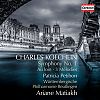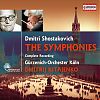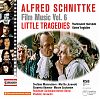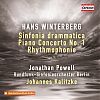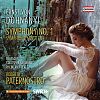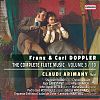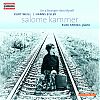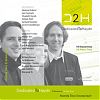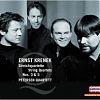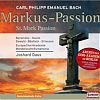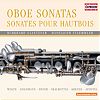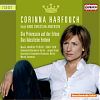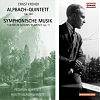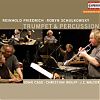cd

Gottfried von Einem DER PROZESS THE TRIAL
Laurenz Schmeckenbecher Schneider · Woldt · Eerens · ORF Vienna Radio Symphony Orchestra · HK Gruber
The Austrian composer Gottfried von Einem got to know the mechanism of this process himself, and it was ultimately thanks to some good fortune that he did not become one of the countless victims of the Nazi system of injustice.
He was one of those great composer personalities that played a major role in rebuilding the waste of the Austrian music scene after 1945, following the devasting cultural policies of Austrofascism, which were above all hostile to modern trends, and even more so those of the Nazis. Catchy thematic and melodic ideas, sharply accentuated rhythm, strong gestural and dance-like vigour and a pronounced feeling for differentiated timbre characterized von Einem’s highly personal musical diction, which can also be discerned in the opera Der Prozess. Einem-pupil, composer and conductor HK Gruber made an amazing, by audience and press enthusiastic celebtrated concertant performance during the Salzburg Festival 2018 which is documented on this recording.
Weitere Bilder

ASTOR PIAZZOLLA - MARIA DE BUENOS AIRES
Lothar Hensel · BEETHOVEN ORCHESTER BONN · CHRISTOPHER SPRENGER
‘María de Buenos Aires brought me inner peace, a partial serenity that has changed my way of approaching music. I reached the zenith of my musical life at the time. (Astor Piazzolla)
Piazzolla himself equated María to the tango and its historical ups and downs; and this is probably also the primary aid to understanding the reception of the contents of the piece. Next to that, there is also a musical diction that is entirely unique in the second half of the 20thcentury, indeed in the New Music scene as a whole. ‘I learnt something: to be patient, to be self-critical, to co-ordinate reflection with passion. Now I am told: ‘That is a different Piazzolla’, but that is not the case. I am the same man, but I have reached a synthesis’. (Astor Piazzolla)
Weitere Bilder

Zara Levina
Lettberg · Revich · Adrion · Riemke · Tchemberdji
After the great success and Grammy nominated Album of The Piano Concertosby russian composer Zara Levina (Capriccio C5269), this recording focus now on different types of chamber Music compositions by the same composer. Again, the Riga-born pianist Maria Lettberg plays the leading part on this recording and shows the high creativity of the unjustified forgotten composer.
Weitere Bilder

GOTTFRIED VON EINEM
RUNDFUNK-SINFONIEORCHESTER BERLIN · JOHANNES KALITZKE
Gottfried von Einem was one of those great composer personalities that played a major role in rebuilding the waste of the Austrian music scene after 1945, following the devasting cultural policies of Austrofascism, which were above all hostile to modern trends, and even more so those of the Nazis. We owe Einem not least his rescue of the note material of many works by banned colleagues from destruction. Catchy thematic and melodic ideas, sharply accentuated rhythm, strong gestural and dance-like energy and a pronounced feeling for differentiated timbres determined Gottfried von Einem’s musical diction at an early age, features he retained throughout his life.
Weitere Bilder

Karl Weigl
David Frühwirth · Benedict Kloeckner · Florian Krumpöck
Somewhere between the first and second decade of the “short” 20th century, the great Viennese musical tradition of Beethoven, Brahms, Bruckner, and Mahler supposedly crashed into the limits of tonality and came to a halt. Schoenberg, Webern, and Berg composed anew, now according to what was supposed to be the “historically inevitable” system of atonality. Karl Weigl went on to write marvelously traditional music. Schoenberg wrote in 1938 that “I always considered Dr. Weigl one of the best composers of the old school; one of those who continued the glittering Viennese tradition.” And that is what we hear in abundance in Weigl’s output throughout the genres: His symphonies , his songs , his concertos , his string quartets , and the chamber works for piano, cello, and violin in various combinations.




